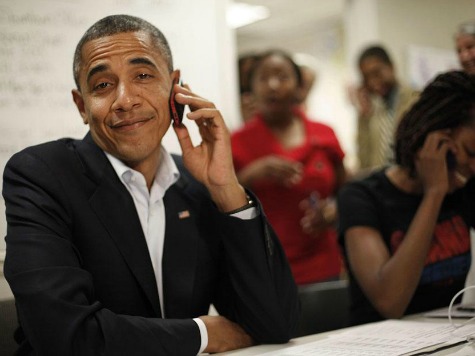Obamacare did not help the President get reelected Tuesday, but exit polls suggest the narrative that Obama cares more may have been the difference between winning and losing.
We’ve all heard the phrase “It’s the economy, stupid” coined by James Carville during the 1992 Clinton campaign. Focusing on the economy was clearly the GOP game plan in 2012 and Mitt Romney often beat Obama in polls of who would do a better job handling the recovery. NBC exit polling Tuesday showed Romney tied with Obama on this issue which was the number one concern of a majority of voters. So why didn’t Romney win?
NBC exit polling suggests an answer “On the attribute of whether the president or his GOP rival was ‘acandidate who cares about people like me’ Obama had a massive lead overRomney.” In other words, the candidates were tied on the big issue of the day, but voters were convinced Obama cared more. Advantage Obama.
CBS exit polling points toward the same conclusion albeit in a more specific way. In their poll, 15 percent of respondents said Obama’s response to hurricane Sandy was the most important factor in their vote. 15 percent! Another 26 percent rated it an “important factor” in their decision.
The importance of Sandy to Obama’s closing momentum was noted by MSNBC’s Chris Matthews who, in a moment of partisan honesty, said “I’m so glad we had that storm last week…politically I should say, not in terms ofhurting people. The storm brought in possibilities for good politics.”
While many Republicans felt Obama’s tour of New Jersey was a photo op by a smart politician, there’s little doubt that many voters were favorably impressed. One can easily imagine this being especially true in Florida which is often the scene of hurricane disasters.
It seems the idea that Obama cared was more important to many Americans than Benghazi, or Iran’s nuclear ambitions, our growing debt, our failing schools or any number of other issues conservatives raised prior to Tuesday. A significant number of voters, who probably aren’t familiar with the details of these issues anyway, voted on what cut through. An image of compassion. That may not be strictly rational but the votes still count.
It’s at least arguable that the compassion vote has been a key segment of every winning presidential election in the last 25 years. George H.W. Bush gave a speech at the RNC in 1988 in which he promised a “1000 points of light” which would “keep America moving forward, always forward” Sound familiar?
In 1992 Bill Clinton was known for his charisma but also his empathy. He was someone who would “feel your pain.” In a town hall debate that year he told one woman “in my state, there’s a good chance that when people lose their jobs I’ll know them by their name.” This is more than a bit implausible since Arkansas had 2.4 million residents in 1992. It didn’t matter. Big-hearted Bill won that year and won again in 1996 despite the disastrous (for Democrats) ‘1994 midterm elections. Again, this should sound vaguely familiar.
In 2000 America was ready for a change. The turned to notably un-slick George W. Bush who announced that he was a new breed of GOP politician, a compassionate conservative. He ran against a politician known for being stiff and awkward and he won, just barely.
In the wake of 9/11 and two wars, Bush seemed to be on the ropes in 2004. He was aided by a late surge of evangelical voters. A Pew poll found that among Bush voters 44 percent listed “moral values” as their top issue that year while Kerry voters were concerned about Iraq and the economy. No doubt many Democrats felt voters had lost their minds, just as many conservatives feel about Obama voters this year.
Finally we reach 2008 where the nation was introduced to Obama as a man whose thinking was based on empathy. So much so that after 9/11 he wrote a column for his local paper explaining “The essence of this tragedy, it seems to me, derives from a fundamental absence of empathy on the part of the attackers.” Whether he was voting against Justice Roberts confirmation or praising Planned Parenthood he framed his arguments in terms of “empathy.”
After his election, Obama signature legislative achievement was called Obamacare by his opponents. He eventually embraced the name saying “I do care.” He also added a warning “If the other side wants to be the folks who don’t care, that’s fine with me.”
As a party emphasizing rugged individualism, entrepreneurship and small government, fighting a battle over who is most compassionate may not come easy to conservatives. It certainly won’t feel as natural as it does for big government liberals. But there is good reason to think no one wins without winning, or at least strongly contesting, this battle. That may not be healthy for the country but it seems to be one of the few things that connects with millions of low information voters who enter voting booths with little else to go on.

COMMENTS
Please let us know if you're having issues with commenting.